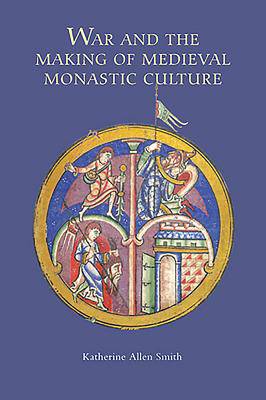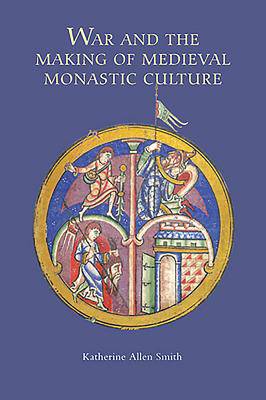
- Retrait gratuit dans votre magasin Club
- 7.000.000 titres dans notre catalogue
- Payer en toute sécurité
- Toujours un magasin près de chez vous
- Retrait gratuit dans votre magasin Club
- 7.000.000 titres dans notre catalogue
- Payer en toute sécurité
- Toujours un magasin près de chez vous
Description
"An extremely interesting and important book... makes an important contribution to the history of medieval monastic spirituality in a formative period, whilst also fitting into wider debates on the origins, development and impact of ideas on crusading and holy war." Dr William Purkis, University of Birmingham Monastic culture has generally been seen as set apart from the medieval battlefield, as `those who prayed' were set apart from `those who fought'. However, in this first study of the place of war within medieval monastic culture, the author shows the limitations of this division. Through a wide reading of Latin sermons, letters, and hagiography, she identifies a monastic language of war that presented the monk as the archetypal `soldier of Christ' and his life of prayer as a continuous combat with the devil: indeed, monks' claims to supremacy on the spiritual battlefield grew even louder as Church leaders extended the title of `soldier of Christ' to lay knights and crusaders. So, while medieval monasteries have traditionally been portrayed as peaceful sanctuaries in a violent world, here the author demonstrates that monastic identity was negotiated through real and imaginary encounters with war, and that the concept of spiritual warfare informed virtually every aspect of life in the cloister. It thus breaks new ground in the history of European attitudes toward warfare and warriors in the age of the papal reform movement and the early crusades. Katherine Allen Smith is Assistant Professor of History, University of Puget Sound. Reviews Skilfully demonstrates that martial imagery was a major force in the creation of monastic culture. [...] Truly a remarkable achievement. Highly recommended. CHOICE
Spécifications
Parties prenantes
- Auteur(s) :
- Editeur:
Contenu
- Nombre de pages :
- 250
- Langue:
- Anglais
- Collection :
- Tome:
- n° 37
Caractéristiques
- EAN:
- 9781843836162
- Date de parution :
- 21-04-11
- Format:
- Livre relié
- Format numérique:
- Genaaid
- Dimensions :
- 178 mm x 235 mm
- Poids :
- 625 g







